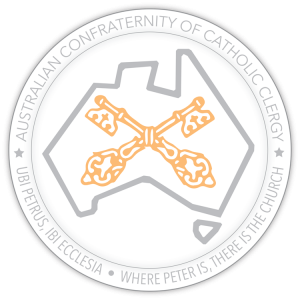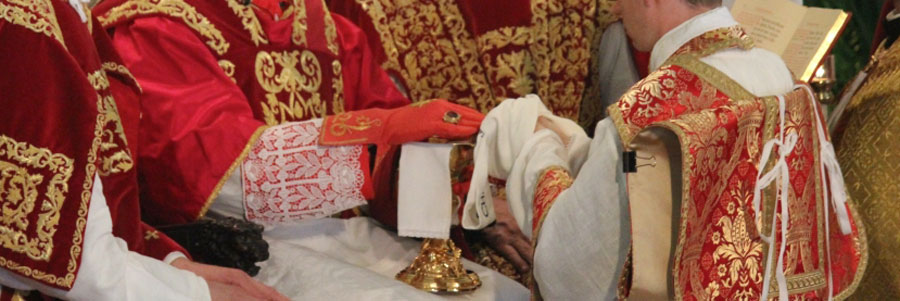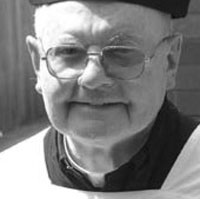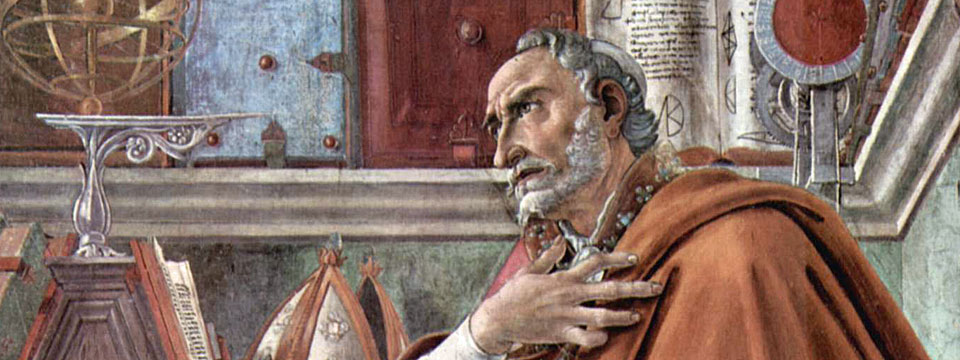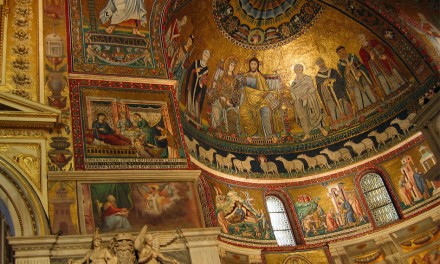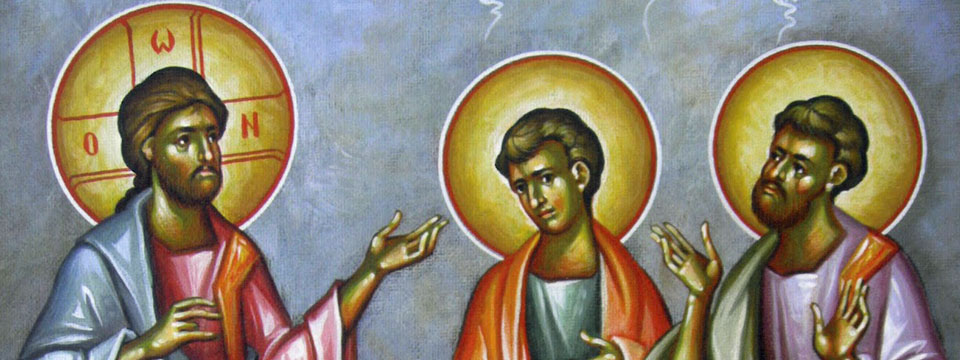… I also repeat what the priest says just after receiving the Sacred Host at this Mass: “Quid retribuam Domino pro omnibus quae retribuit mihi? — What shall I render to the Lord for all the things that He hath rendered to me?” (Ps 115:12), I think also of what St Paul said to the Corinthians: “What hast thou that thou hast not received? And if thou hast received, why dost thou glory, as if thou hadst not received it?” (1Cor 4:7).
… And his voice, now also stilled, proclaimed aloud the all-important words of the Ordination Preface in the Roman Pontifical: Da, quaesumus, Omnipotens Pater, in hos famulos tuos Presbyterii dignitatem – “We beseech Thee, Almighty Father, give unto these Thy servants the dignity of the Priesthood. Renew within their hearts the spirit of holiness, that they may hold the function of second rank which they have received from Thee.” To emphasise the importance of these words, the ordaining Archbishop, while reciting them, held his hands extended; and from this combination of word and gesture, we knew exactly what we were being ordained to, namely, to the second rank of the hierarchy, not to the first rank of Bishops, nor to the third rank of Deacons, but to the second rank of Priesthood.
…I extended towards [the bishop] the palms of my hands, which he anointed with the consecrated Oil of Catechumens, while reciting this inspiring and beautiful prayer: Consecrare et sanctificare digneris, Domine, manus istas per istam unctionem et nostram benedictionem. Amen. Ut quaecumque benedixerint, benedicantur, et quaecumque consecraverint, consecrentur et sanctificentur, in nomine Domini nostri Jesu Christi. Amen. – Deign to consecrate and sanctify these hands, O Lord, by this anointing and our blessing. Amen. That whatsoever they shalt bless may be blessed, and whatsoever they shall consecrate may be consecrated and sanctified, in the name of Our Lord Jesus Christ. Amen.”
… My Dear Brethren, I remember another detail about that anointing of my hands which occurred this day fifty years ago: even while those hands were still wet with the Holy Oil, they were bound with a white cloth, like a bandage wrapped around and enclosing both hands, but leaving the fingers free. With my hands thus bound, I knelt before the then Archbishop Gilroy who was again seated. But this time, he was holding, not the Holy Oil container but a chalice, with wine, paten and host. These I had to touch in a particular way; and while I was doing so the Archbishop uttered these wonderful and awe-inspiring words: Accipe potestatem offerre sacrificium Deo, Missasque celebrare, tam pro vivis, quam pro defunctis. In nomine Domini. Amen. – Receive the power to offer sacrifice to God, and to celebrate Masses for the living as well as for the dead. In the name of the Lord. Amen.”
… [And] even now I fondly and gratefully recall … towards the end of that ceremony the then Archbishop Gilroy, while seated, again imposed his hands upon my head and at the same time uttered these memorable and consoling words: Accipe Spiritum Sanctum. Quorum remiseris peccata, remissa sunt; et quorum retinueris, retenta sunt — Receive the Holy Ghost. Whose sins you shall forgive, they are forgiven them; and whose sins you shall retain, they are retained.” (Jn 20:23)
… At this point, my Dear Brethren, we change from the Ordination ceremony itself of fifty years ago to something that in those days had to be done beforehand: I had to kneel before a priest who was representing the Archbishop, and put my hand on the open page of the Gospel, in order to take the Tridentine Oath; and the following was a part of that important Oath to which I then swore: “I resolutely accept and embrace the Traditions of the Apostles and all other Traditions of the Church, and all its observances and regulations…. Moreover, I maintain and profess, without doubting, all the other teachings of the General Councils, especially the most Holy Council of Trent and the (first) General Council of the Vatican (1869- 1870) … I condemn, reject, and anathematise all opinions to the contrary and all heresies…. So I promise, vow and swear … to hold and profess this Faith entire and unblemished … until my last breath, and so to teach any of those who may be committed to my charge. So help me God, and these Holy Gospels which I now touch.”
… These considerations on the unchangableness of the Priesthood, my Dear Brethren, intensify still more my desire to thank God for admitting me into it so long ago, and for allowing me to persevere therein amid the ups and downs of fifty years. There is no place at all here for even the slightest personal vanity or vainglory; and on the contrary, I humbly ask God’s pardon for any mistakes which I have made in my priestly ministry. And I beg your prayers that Almighty God may bless that ministry in the future, and indeed, that the Priesthood in Sydney and New South Wales, may indeed flourish amongst us as it used to.
For remember, as the Sydney Morning Herald reminds us (11 December 1989) that this very year, 1989, is the year of a most shameful priestly record for Sydney: 1989 in fact is the first year in more than a century in which Sydney, a city of more than three and a half million people, has not ordained even one Catholic priest! And throughout the whole State of New South Wales, only three diocesan priests have been ordained in 1989, in stark contrast to the 20 or 30 priests ordained two decades ago. I wonder indeed if, by any chance, the numerous changes in the Ordination ceremony already alluded to, have anything to do with the shameful 1989 priestly record just mentioned. At any rate, Dr Gerry Iverson, the President of St. Patrick’s College, Manly, the chief seminary in New South Wales, said that the Ordination class of 1989 evaporated for a variety of reasons: “Some took time out, some dropped out, some postponed their decision.” Alas, perhaps Our Lord was warning us … (cf., Mt 13:20-21, 24:12-13).
… [It is a] fact that the Apostolic Constitution Missale Romanum of Pope Paul VI, issued on 3 April 1969 to promulgate the New Order of Mass, in its original Latin text never made this new Mass obligatory at all, either for priests or people. It remains true therefore that even today, at the end of the 1980s, at the beginning of a new decade, there is no strictly obliging command from Rome for anyone at all to celebrate or attend the new Mass, whether it be said in Latin or in English, or in any other language. I myself have never celebrated this new English Mass, and have no intention of doing so. In this I am encouraged by two documents of our present Holy Father, Pope John Paul II: the Indult Quattuor Abhinc Annis of 3 October 1984 and the Apostolic Letter Ecclesia Dei of 2 July 1988. Both of these documents encourage the increased use of the traditional Latin Mass, already commanded to be used by the Quo Primum Decree of Pope St Pius V in 1570, as we have earlier seen. And remember that this was not a new Missal, because Pope St Pius V was then merely codifying the already existing Missal and giving increased legal status to it. So, having been ordained after taking the Tridentine Oath, I logically seek to celebrate the Mass that is closest to that Tridentine Oath from which I have never been released.
… I would like to conclude, my Dear Brethren, by saying that, in view of the reasons earlier mentioned, this Latin Mass today is not at all against the wishes or commands of the Pope, and this situation in itself encourages us to keep using this Tridentine Mas …. that has been so widely used by great Popes, great Doctors of the Church, great theologians and by so many Saints, martyrs and missionaries, for century after century. These are the thoughts I leave with you. I ask you to pray for me, to thank God for any good accomplished in the last fifty years, and to ask His blessings for the future.
